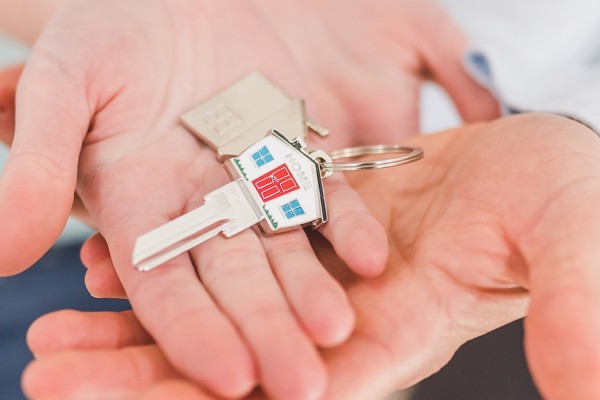Individual or corporate ownership?
The taxes associated with the ownership of your Scottish property will largely depend on the ownership structure which you choose. Will you own the property in your own name, or jointly with a family member? Or do you intend to use a corporate structure, with the property owned by a holding company? Before your purchase is completed, it is important to reflect on which is best for you, taking account of the tax considerations.
Individual ownership
Income tax
Is the property going to be let? If so, income tax will be payable on rental income. The exact rate at which income tax is payable will depend on your overall level of UK income and capital gains, and will range from 20% to 45%. For some couples, this will mean that it is more tax-efficient to hold the property in the name of the lower-earning spouse, to ensure that the lower rate is payable.
Those resident in the UK, the European Economic Area, and certain other countries are entitled to a personal allowance of income free from income tax (currently £10,600), but those without this entitlement will pay income tax on all rental income generated by the property.
Capital Gains Tax (CGT)
Even before you've bought your property, it's worth looking ahead to think about the possible tax on the sale of your property. CGT is a tax which is charged on the sale or transfer of a property, and is a percentage of the increase in value throughout the period of ownership. Historically this did not apply to non-residents, but the law has recently been changed, and all property owners can now be subject to CGT.
Just like income tax, the rate at which CGT is payable is based on the owner's overall income and gains in the UK in any given tax year. CGT is payable at either 18% or 28% depending on the level of total income and gains chargeable in the UK.
Each individual has an annual exemption for CGT (£11,100 for the current tax year). Properties owned in joint names can benefit from two annual exemptions, which can reduce the tax charge.
There is also tax relief where the property has been used as the owner's main residence for at least part of the tax year in which it is sold, and this can be very useful in reducing or even completely eliminating a CGT charge. Where the property is being purchased for a child who will be living in it, perhaps while attending university, this can be an attractive reason to have their name put on the title (although that of, course, needs to be balanced with other considerations).
Inheritance Tax (IHT)
Those domiciled outside the UK will still be liable for IHT on property owned in the UK, and may face a tax charge upon their death, or in relation to certain lifetime disposals.
Each person has an IHT allowance known as the 'nil rate band' (currently £325,000), below which no IHT will be due. Beyond that, UK assets will be taxed at 40%, unless they pass to certain exempt beneficiaries, such as a spouse or charity. The nil rate band is transferable among spouses, meaning that a couple can have up to £650,000 available before IHT is payable on their joint estate.
Corporate ownership
So what is the alternative to individual ownership? It has historically been popular for non-UK domiciled purchasers to make use of a non-UK holding company when purchasing UK residential property. However, the tax rules relating to corporate ownership of property have changed and may make this type of ownership less attractive in the future from a tax perspective.
Corporation tax
Companies do not pay income tax, and instead any rental income received in relation to the property will be subject to corporation tax. This is currently 20%, and is being gradually reduced to 18% by 2020.
Annual Tax on Enveloped Dwellings (ATED)
ATED is a relatively new tax payable by companies that own high value UK residential property. It is an annual charge based on the value of the property, and from 2016 will apply to all property valued at over £500,000. The current ATED bands are shown here. This will be a fixed cost each year, and particularly for more valuable properties, will mean a considerable outlay over the period of ownership.
There are various reliefs available, including where a property is rented to a third party on a commercial basis. However even in these cases a tax return must be completed, so there will be ongoing compliance.
Capital Gains Tax
CGT is payable by companies just as it is by individuals, and so will be payable on any increase in the value of the property during ownership. Companies generally pay at a flat rate, but where the property is subject to the ATED regime (i.e. worth over £500,000), the applicable rate is 28%.
Inheritance Tax
Finally, IHT should always be a consideration - even where property is owned by a company, shares in that company will always be owned by individuals. At present, there is no IHT charge where a non-UK domiciled individual dies owning shares in a non-UK company that owns UK residential property. This is because the individual does not directly own a UK asset, but rather shares in an overseas company.
However, these rules will be changing from April 2017, and an IHT charge will arise when the owner of the shares in the holding company dies. The charge to tax is based on the value of the property, and is payable at the standard IHT rate of 40%. Each shareholder will have a nil rate band of £325,000, and tax will only be payable above this level.
How Morton Fraser can help
These various taxes, and the different ways in which they affect property owned by individuals and companies, can seem to paint a complicated picture. However at Morton Fraser we have the experience and expertise to make the picture clearer. We will discuss your personal circumstances and options with you, and advise you on the best strategy for making your purchase in Scotland.
For further clarity, please contact us on the details below.


